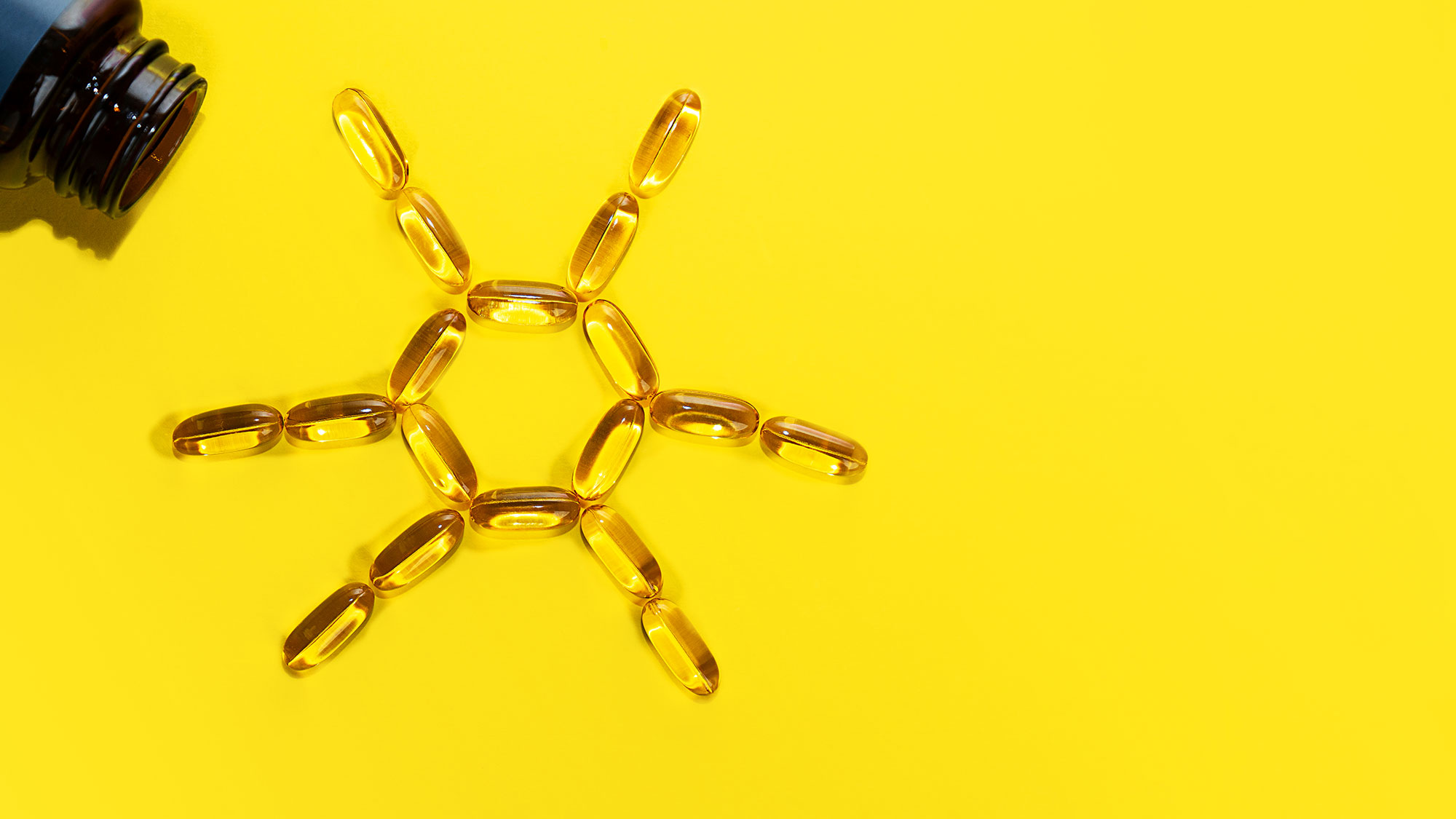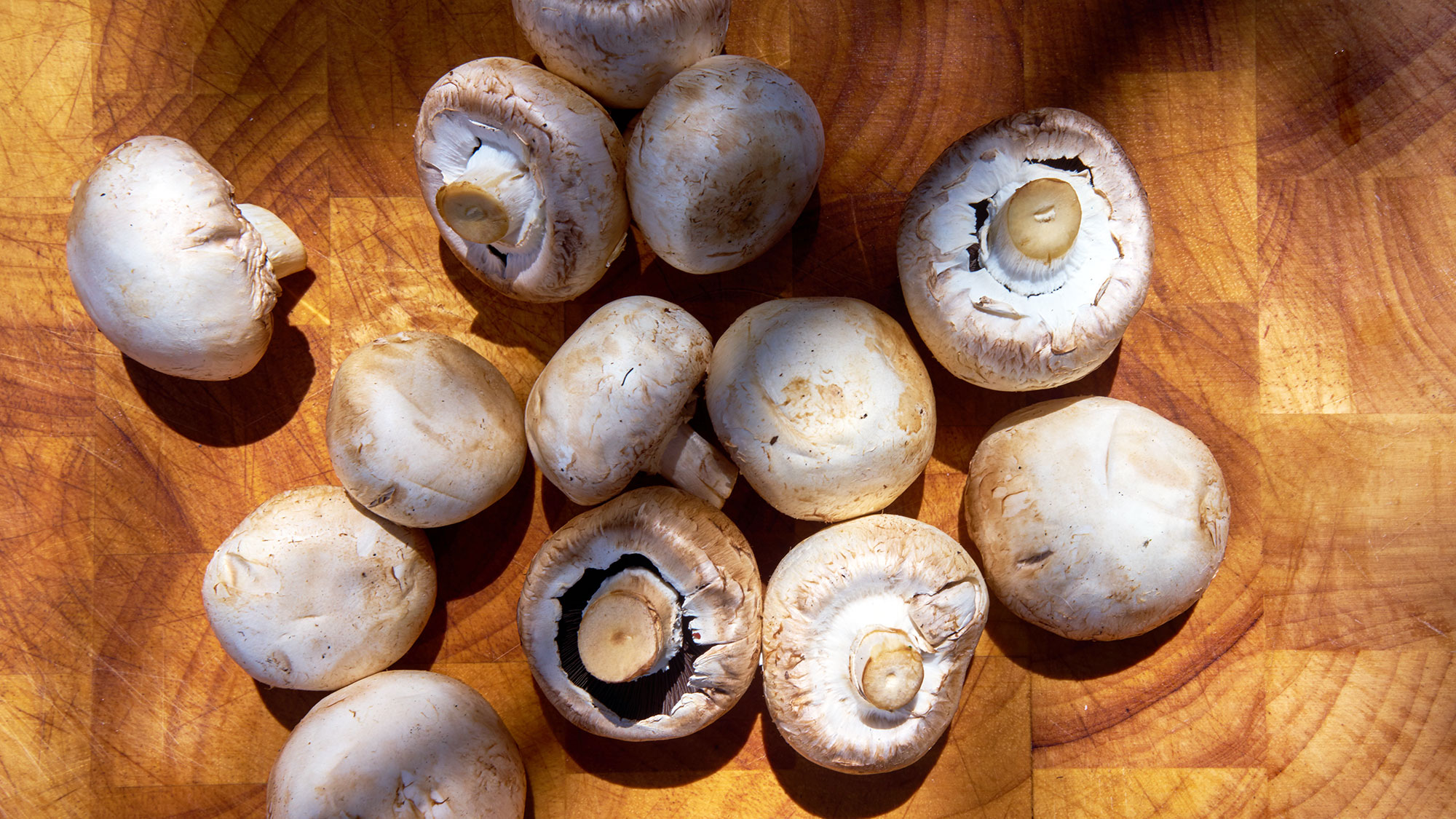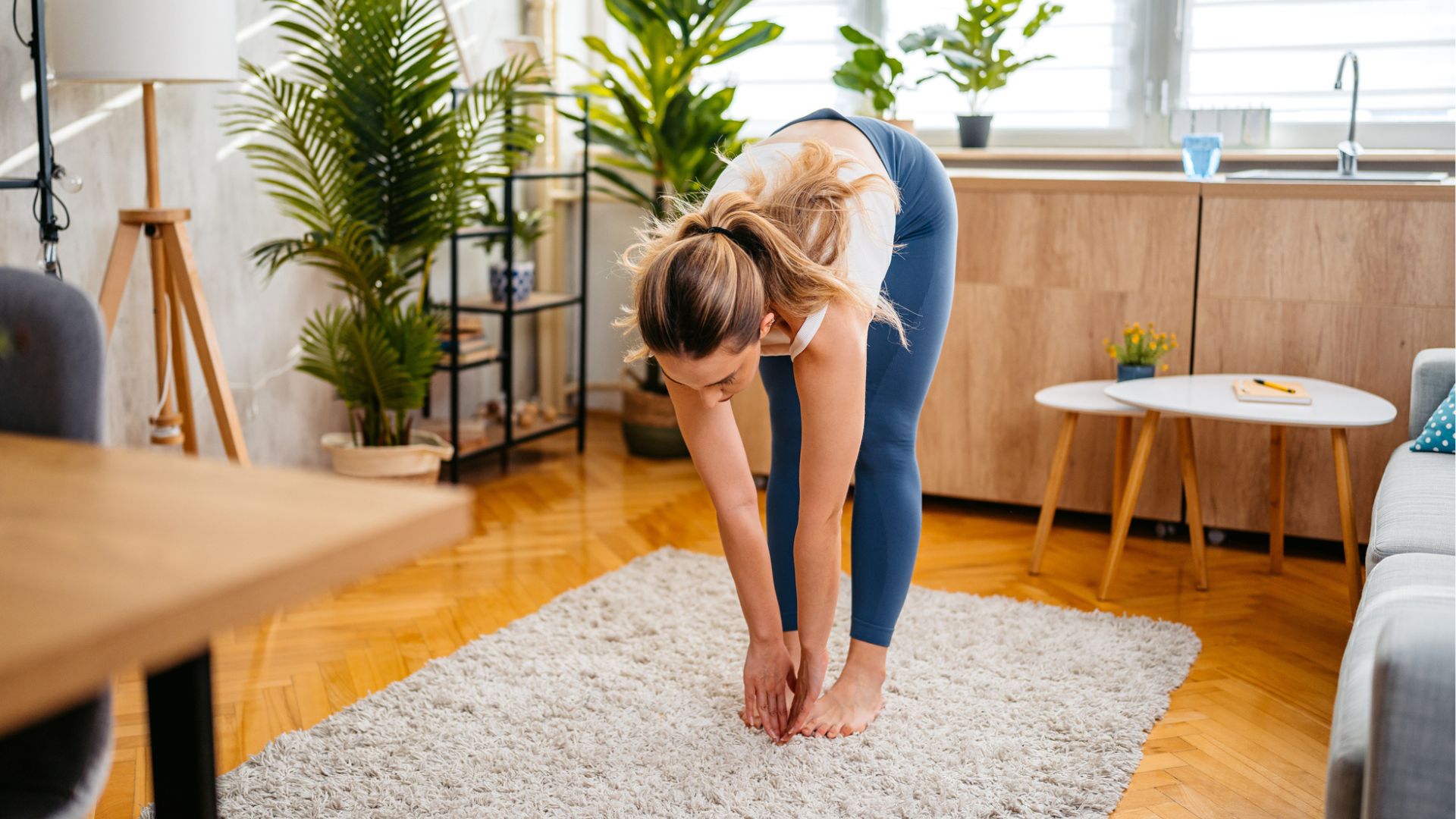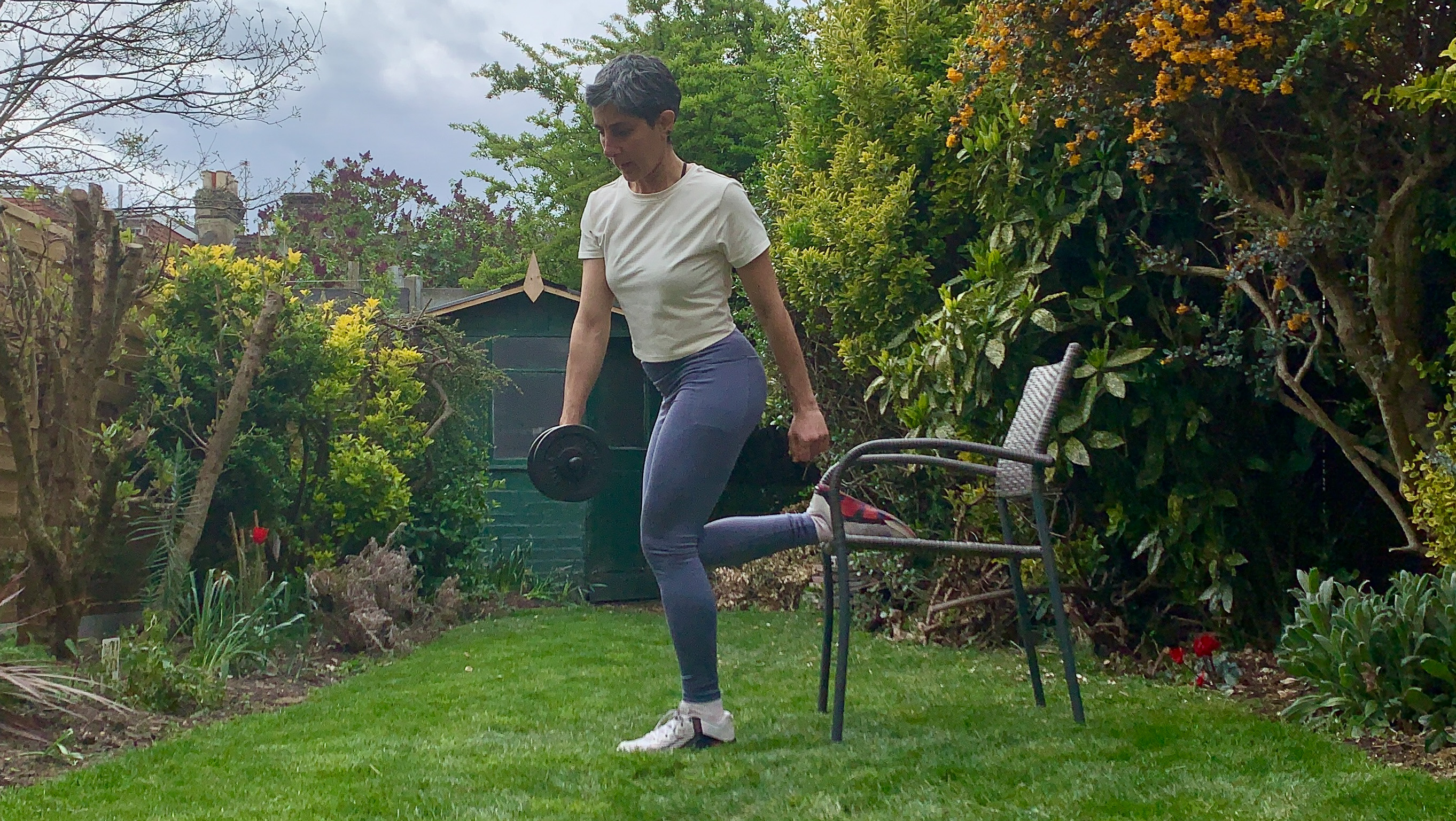Why vitamin D is so important for good health – especially in the winter months
Getting enough vitamin D - the so-called 'sunshine vitamin' - is a priority during darker, colder months


We’ve all gone outside to ‘top up our vitamin D levels’ when the sun is beating down in mid-summer. But what does it mean in winter when we’re mainly indoors trying to stay warm in clothing that covers most of our skin?
It means that your vitamin D levels probably aren’t where they should be. One in four US adults and one in five UK adults have low levels, and this number goes up during winter and spring in the Northern Hemisphere - AKA right now - when people are typically exposed to less sunlight, the main source of vitamin D.
It turns out most of us should be paying more attention to vitamin D, and the effects a lack of it can have on our bodies, in particular our bones. That's just one of the reasons that a vitamin D supplement tops our list of the best vitamins for women over 50, although many people - men and the under 50s included - can benefit from supplementation at certain times of year.
Lisa Simon is a nutritionist and dietician at Plant Based Health Professionals.We asked her for her expert advice on how much vitamin D you need when the sun disappears for winter, and what happens if you don’t get enough.
Why is vitamin D so important?
Vitamin D is a vital vitamin. The presence of it in our bodies is essential for bone and muscle health, and it also helps to support a robust immune system. And, unlike other vitamins which are considered nutrients, vitamin D is in fact a hormone within our bodies.
“Food is not our main source of vitamin D, it’s the sun,” says Lisa. “During summer, the sun’s UVB rays are strong enough to enable our bodies to make vitamin D. However, during winter – in particular between October and March [in the Northern Hemisphere] – the sun’s rays are not strong enough, so we have to rely on our stores of vitamin D and food sources."
She adds: “Despite this, these are still not sufficient and it’s recommended that everyone, regardless of their diet, should take a vitamin D supplement throughout the winter months.”
Get the Fit&Well Newsletter
Start your week with achievable workout ideas, health tips and wellbeing advice in your inbox.
Benefits of vitamin D
Vitamin D works alongside calcium and phosphorus to help keep your bones, muscles and teeth in tip-top shape. It also protects your muscle strength and prevents bone weakness, which can lead to falls and fractures if bone strength weakens.
If you consume a calcium-rich diet, vitamin D is essential to absorb that calcium into your bones and cells.
The amount of vitamin D your body makes varies during the day, and depends on how strong the sunlight is. You make more if your skin is exposed to direct sunlight. But as we age, our bodies become less efficient at making vitamin D. This applies particularly to older adults over the age of 65.
Sources of vitamin D
Many foods contain high amounts of vitamin D to boost your body’s levels, in particular oily fish and cod liver oil. Meat, eggs and milk contain lower levels, and the amount can vary from season to season.
As most vitamin D foods are predominantly meat and dairy-based, vegetarians and vegans should be extra mindful of their intake.
“Vegans and vegetarians get vitamin D the same way that omnivores do – from supplements, fortified foods and sun exposure,” says Lisa.
“Suitable vegan sources of vitamin D include colecalciferol [vitamin D3] or those derived from lichen or ergocalciferol [vitamin D2] which is derived from yeast.
“The main dietary sources of vitamin D in a plant-based diet are fortified milks and yoghurts, providing an average of 1.1mcg per 100ml/g, and fortified breakfast cereal.”
Mushrooms that have been ‘sunbathed’ can also provide vitamin D. This means exposing them to sunlight, either outside during summer or on a windowsill with the window open to enable UVB rays to reach them. They can also be bought ‘pre-sunbathed’.

Leaving mushrooms in direct sunlight increases their vitamin D content
When to take a vitamin D supplement
“For the majority of over-50s, a 10mcg dose of vitamin D is recommended daily during the winter months,” says Lisa.
“Those who have been diagnosed by their doctor as deficient in vitamin D will need to take a higher dose for a set period of time.”
Lisa says that taking higher doses for a prolonged period requires supervision by a medical professional, as vitamin D is a fat-soluble vitamin.
“This means that unlike water-soluble vitamins, any excess is not excreted via the kidneys into the urine, and is instead stored in the liver. Very high doses can cause nausea, vomiting, confusion, impaired appetite and can ultimately result in calcium building up in the body, which can weaken bones and damage the kidneys and heart.”
The NHS advises adults not to exceed 100mcg per day due to the risk of harm. “There are certain groups who may need to take a supplement all year around, as they are unlikely to build sufficient stores, even in the summer months,” says Lisa.
“These include adults over the age of 65, people with darker skin tones, people who cover the majority of their skin, those who spend a lot of time indoors and people who live in areas with higher levels of pollution. This is because air pollution affects the amount of UVB rays reaching Earth’s surface.
'Pregnant and breast-feeding women also fit into this category, as their needs are higher.”
Vitamin D deficiency
In adults, a lack of vitamin D can affect the immune system, leading to an increased risk of catching common infections.
There is also a higher likelihood of mood changes, and feeling intensely fatigued is a common symptom. It can eventually result in osteomalacia, the adult form of rickets, a condition that causes softening of the bones, muscle pain and weakness.
Anyone suffering from low-mood associated with a lack of sunlight (commonly known as Seasonal Affective Disorder) may also benefit from the best SAD lamps on the market, although these do not directly top up vitamin D levels.
The coronavirus pandemic has escalated the debate around the issue of vitamin D supplementation, and the link between Covid-19 and vitamin D status is currently still being explored.
Howard is a freelance health and fitness journalist and copywriter. He has written for publications including ShortList, Runner’s World, Trail Running, Women’s Running, Red Bulletin, Wareable and Cycling Weekly. He enjoys nothing more than lacing up his trail shoes and heading out to explore new trails. He’s run ultramarathons everywhere from the French Alps and Canadian mountains to the Welsh coast and Peak District. When not running, he’s usually found hitting his local MTB singletrack trails or on a quest to find the country’s best cinnamon bun.
-
 It only takes two minutes a day to build up the flexibility required to touch your toes, says a top mobility coach
It only takes two minutes a day to build up the flexibility required to touch your toes, says a top mobility coachMeasure, reach and repeat says Roger Frampton
By Sam Rider
-
 I swapped my usual core routine for this dumbbell workout—here’s why you should try it too
I swapped my usual core routine for this dumbbell workout—here’s why you should try it tooPick up some dumbbells and try my favorite deep core exercises
By Yanar Alkayat